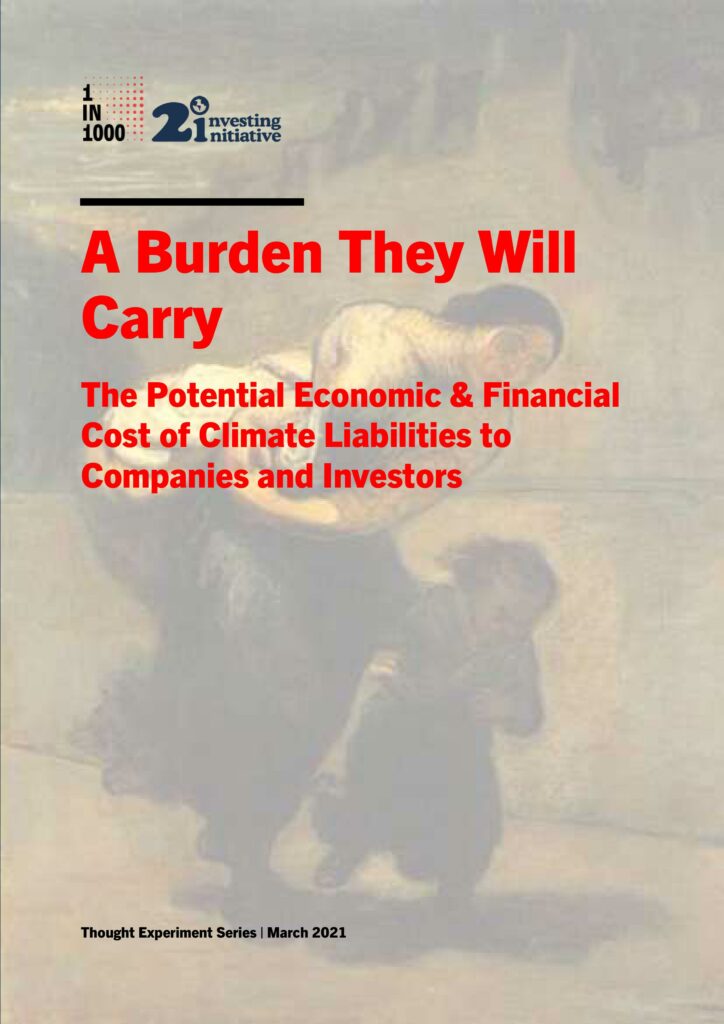It quantifies the costs using traditional ‘externality’ accounting through the ‘social cost of carbon’ literature, as well as damages based on historical cumulative emissions, using estimates from Heede et el. (2017). It also puts forward a new metric – called the climate delta liability – which quantifies costs as a function of the ‘carbon overshoot’ of a company relative to a 1.5°C and 2°C scenarios in terms of their investment and production plans. This approach provides unique advantages as it demonstrates the ‘marginal contribution’ to different global warming outcomes, and directly links the forward-looking planning of companies to a measure of accruing accountability for climate change.
This analysis is not a comment on the actual likelihood of climate litigation itself, but simply the potential responsibility for climate damages should the legal theories underpinning legal actions prove successful in court. Thus, it does not address the legal intricacies associated with this emerging field, but instead focuses on the much more nascent research area of quantifying corporate climate costs and their responsibility for global climate damages. We hope to stimulate discussion as to how this metric might be assimilated into litigation strategies or stewardship activities of investors, as well as financial sector policies.
First, we outline the methodologies for quantifying corporate climate costs. We then quantify these liabilities for a sample of 437 oil & gas companies and 100 power companies under three litigation scenarios and potential implications for share prices and costs (in the form of foregone dividends) faced by investors in these companies. We demonstrate that even under highly conservative assumptions regarding economic damages from climate change and attribution responsibilities, these climate liabilities can create significant economic and financial costs, both for companies and the investors that own them.
About our funder: This report has received funding from the European Union’s Life programme under LIFE Action grant No. LIFE19 GIC/DE/001294. This work reflects only the author’s view and the Agency and the Commission are not responsible for any use that may be made of the information it contains.



